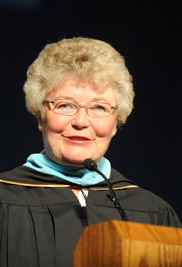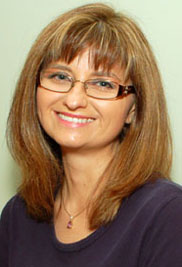eInside Briefs
News Briefs
- Information About the Tuition Plateau
- Ohio Board of Regents Approves New Undergraduate Degree Programs
- Auditor of State’s Fraud Reporting Hotline
- Vote for Kent State’s Judy Devine in Title IX Trailblazer Contest
- 2012-2013 Faculty/Staff Online Parking Permit Renewals Begin April 15
- Parental Involvement Aids Development of Millennial Students
- Kent State Student Receives American Counseling Association Award
- Kent Fire Department Performs Annual Prairie Burn
- Last e-Inside Issue for the Spring 2012 Semester
Information About the Tuition Plateau
At its March 14 meeting, the Kent State University Board of Trustees approved a change to the university’s tuition plateau, which will be phased in starting the fall 2012 semester. The board recognizes that the resources provided as state assistance are constrained by the economic challenges throughout the nation, state and region. Nevertheless, additional resources are needed in a number of areas to preserve academic program quality, facilities and services to students in order that the university’s excellence agenda may continue.
The university is implementing a two-step change in the tuition plateau to 11-17 credit hours for 2012-13 and 11-16 credit hours beginning 2013-14. Students (Ohio residents and out-of-state) will be charged $440 per credit hour for all enrolled hours above the full-time tuition range. That is the regular per-credit rate for tuition and general fees for students taking less than 11 credits.
In the first year, there will be no impact on 87 percent of Kent State students as 12.6 percent of students enrolled in 18 or more credits in the fall 2011 semester. The average credit-hour load for all students is 13.5. To achieve on-time graduation, most majors require a minimum of 121 hours, or 15 or 16 hours per semester.
Kent State will remain a great value proposition for our current students and those who enroll in the future. The university’s tuition and fees rank 7th of Ohio’s public universities, meaning that six institutions have higher tuition. Even with the new plateau for next year and the tuition increase, we estimate that for students taking 18-20 hours, Kent State’s tuition and fees will still rank about 5th of the universities.
Current Annualized Tuition and Fees Benchmark, Ohio Board of Regents
| Miami |
$13,105 |
| Cincinnati |
$10,419 |
| Bowling Green | $10,164 |
| Ohio |
$9,936 |
| Ohio State | $9,735 |
| Akron | $9,569 |
| Kent State |
$9,346 |
| Cleveland State | $9,002 |
| Toledo | $8,926 |
| Wright State |
$8,070 |
| Youngstown State | $7,451 |
Currently, only Miami, Ohio State and Kent State do not charge a course overload fee. Both Miami and Ohio State charge more for tuition and fees. For the current year, four institutions use a plateau of 12-16 credits: Cleveland State, Akron, Toledo and Youngstown State. Five institutions set their flat rate for 12-18 credits: Bowling Green, Central State, Cincinnati, Shawnee State and Wright State.
Only Kent State and Ohio University count 11 credits as full-time for tuition purposes. In effect, this means that every student at Kent State receives two credits a year for free compared to peers across the state and nation.
We are listening and stand ready to help students through the transition. The minimum number of credit hours required for graduation is 121, so students who take 15-16 credits per semester will still be able to graduate in four years in most majors without feeling an impact from this change. For students who feel that they must take more than the tuition plateau and are facing financial hardship, the Office of Student Financial Aid and the Division of Enrollment Management and Student Affairs (EMSA) are ready to listen and to help.
back to top
Ohio Board of Regents Approves New Undergraduate Degree Programs

The Ohio Board of Regents approved two new undergraduate
degree programs, including a Bachelor of Fine Art degree in
fashion design to complement the existing Bachelor of Art
degree in fashion design.
The Ohio Board of Regents has approved two new undergraduate degree programs and the revision of six others.
The board approved the establishment of a Bachelor of Science in engineering technology degree to be offered at the Kent State Tuscarawas Campus. A Bachelor of Fine Art degree in fashion design, to complement the existing Bachelor of Art degree in fashion design, also was approved by the board.
“The new Bachelor of Science in engineering technology has been designed to serve the needs of the students, as well as the employment needs of Northeast Ohio, and that of the state in general,” says Kamal Bichara, Ph.D., director of the engineering technology program. “The new degree program was driven by recommendations made by the Industrial Advisory Board and by the employment outlook of the region.”
The engineering technology major comprises three concentrations formerly housed in the Bachelor of Science in technology degree —electrical/electronics, computer design, animation and game design and manufacturing/mechanical systems—and two new concentrations—green and alternative energy and integrated engineering technology.
Speaking of the new B.F.A. degree in fashion design, J.R. Campbell, M.F.A., director of the School of Fashion Design and Merchandising, says, “The creation of the B.F.A. in combination with the major revision of the B.A. program in fashion design allows much greater flexibility and responsiveness in the design curriculum to respond to changes in technology, career specialisms and supply chain innovations in the fashion industry.”
Campbell says that students from both the B.A. and B.F.A. programs will be trained to be successfully competitive for any entry-level design position in the industry and will be required to develop portfolios for presentation at interviews.
Name changes for six degree programs in the College of Arts and Sciences, Department of Biological Sciences and the Department of Modern and Classical Language Studies were ratified by the board.
The College of Arts and Sciences’ Bachelor of General Studies degree will now be known as the Bachelor of Integrative Studies degree, and includes the establishment of a concentration that allows students to combine three minors to form the major.
The Department of Biological Sciences’ conservation major within the Bachelor of Science degree has been changed to environmental and conservation biology, with two new concentrations in conservation biology and environmental policy and management now available.
The French, German, Russian and Spanish majors within the Bachelor of Arts degree in the Department of Modern and Classical Language Studies will now be called French Literature, Culture and Translation; German Literature, Culture and Translation; Russian Literature, Culture and Translation; and Spanish Literature, Culture and Translation, respectively.
“It was important to revise the names of these majors because we made a curricular change that involved the blending of our current degrees programs in translation and literature/culture,” says Jennifer Larson, Ph.D., chair of the Department of Modern and Classical Languages. “The names of the resulting bachelor’s degrees reflect the combination of coursework that will be required for all our majors in these languages.”
For more information about the new undergraduate programs, contact the appropriate academic department or school.
back to top
Auditor of State’s Fraud Reporting Hotline
In 2003, then Auditor of State Betty Montgomery created the auditor of state’s fraud hotline. The hotline was established as a way for all Ohioans to report potential fraud throughout government.
Recently passed legislation House Bill 66 (HB 66), which takes effect May 4, 2012, makes several changes to the auditor of state’s fraud hotline. The system allows all Ohio citizens the opportunity to make anonymous complaints through a toll‐free telephone number, the auditor of state’s website, or through the United States Postal Service.
The legislation also extends the current whistle‐blower protections contained in Section 124.341 of the revised code to employees who file a complaint with the new fraud reporting system. If a classified or unclassified employee becomes aware of a situation and reports it to the auditor of state’s fraud‐reporting system, the employee is protected against certain retaliatory or disciplinary actions. If retaliatory or disciplinary action is taken against the employee, the employee has the right to appeal with the State Personnel Board of Review.
If you suspect fraud, waste or misuse of taxpayer funds, call the auditor of state’s fraud hotline:
1-866-FRAUD OH (1-886-372-8364), or send your tip by email or via a letter addressed to:
Ohio Auditor of State’s Office
Special Investigations Unit
88 E. Broad St.
Columbus OH 43215
For information on what to include when reporting fraud and more, visit www.auditor.state.oh.us/fraudcenter/siu/default.htm.
The Kent State University reporting line also was established to provide a mechanism to communicate fraud and fiscal abuse concerns. The reporting line service is provided through Global Compliance, an independent company that will protect caller anonymity, if requested, to the extent feasibly consistent with university policies and applicable federal, state and local laws. It is available to all employees and can be accessed toll free, 24 hours a day, 365 days a year at:
1-800-683-5621 (U.S.A.)
800-788340 (Italy)
0800-56-1525 (Switzerland)
The following categories of concerns cannot be reported through the Kent State reporting line:
- Academic matters involving faculty and/or students should be reported to the dean or chairperson of the involved.
- Nonacademic student conduct matters should be reported to the Office of Student Ombuds at 330-672-9494.
- Wasteful spending of university funds or using resources for goods or services in excess of actual need represents poor management of funds and should be reported to your supervisor, head of your department or another appropriate university official.
back to top
Vote for Kent State’s Judy Devine in Title IX Trailblazer Contest
Watch the video tribute to help cast your vote for former senior associate athletics director

Matriarch of Kent State University Athletics
and former Associate Athletic Director Judy
Devine is one of only 25 candidates nationwide
up for an award, which includes a $9,000 gift
from the NACWAA Foundation Fund in support
of women’s athletics programs at the winning
representative’s university.
Judy Devine has long been a champion of women’s athletics and academics at Kent State. Now it is time for the Kent State community to be a champion for her.
In commemoration of the 40th anniversary of Title IX, the National Association of Collegiate Women Athletics Administrators (NACWAA) is hosting a video tribute contest to celebrate a Title IX trailblazer who has made significant contributions in the area of gender equity. Devine is one of only 25 candidates nationwide up for the award, which includes a $9,000 gift from the NACWAA Foundation Fund in support of women’s athletics programs at the winning representative’s university.
The video submission with the most views between 10 a.m. EST on Monday, April 9, and 6 p.m. EST on Monday, April 23, will win the prize.
Help support Judy by watching the video below and sharing it with your friends.
www.youtube.com/watch?v=JlP6mVDQwCU
Considered the matriarch of Kent State University Athletics, Devine retired from her post as associate athletic director in 2000 following 31 years in a variety of roles within the department. She came to Kent State as a graduate assistant in 1969 and went on to serve for two seasons (1975-77) as the first head coach of the women’s basketball team in addition to directing the field hockey team from its inception in 1975 through the 1980 campaign.
When the men’s and women’s athletic programs were merged in 1975, she was given the responsibilities of assistant director of athletics before being elevated to associate athletic director in 1978. At the time of her retirement, she coordinated financial aid, housing, awards and the academic performance of Kent State’s student-athletes. She also handled compliance and eligibility until 1999.
In addition to permanently endowing the Athletic Academic Honors Dinner and the expansion of the Academic Resource Center, Devine’s contributions towards Kent State total more than $1.4 million.
back to top
2012-2013 Faculty/Staff Online Parking Permit Renewals Begin April 15
Full- or part-time faculty and staff who currently possess an active 2011-2012 parking permit are eligible for online renewals for the same parking area. Faculty/staff annual parking permit renewal is available for permit holders online from April 15 – May 18. After May 18, permits can be purchased in person at the Parking Services office located in Room 123, Schwartz Center. For permit renewal assistance or for additional information, contact Parking Services at 330-672-4432.
Renew your faculty/staff parking permit here.
back to top
Parental Involvement Aids Development of Millennial Students
The Center for Student Involvement occasionally provides information to the university community on issues of broad interest in student affairs through the Student Involvement Brief. This feature will appear in e-Inside twice a month during the regular academic year.
Over the last decade a new generation of students — the millennials — enrolled in college. Many of them come to college with traits that often differ from students of generations before them. One of such traits is the close relationships that they have with their parents. This close-knit relationship creates an open door for parents to be actively involved in their student’s life, including anything from helping students get admitted to college to choosing what course to take.
Contrary to assumptions that parent involvement hinders students’ development and independence, a recent study done at the University of Georgia’s Griffin campus shows that parental involvement actually fosters development, and most students who have a close relationship with their parents came out on top of the sample. The study was done over four years, distributed in the fall of 2007, and again last spring to hundreds of students and their parents at a variety of college types, from small and large private colleges, to midsized and large public colleges across the country.
“In our sample, we see that closeness is not necessarily dependence,” says Alicia Peralta, graduate assistant for educational programs at NASPA. “Students in our sample who are close to their parents seemingly ostensibly show development that is consistent or on par with national norms.”
Students in this study were surveyed in categories such as life purpose, autonomy and intimate personal relationships. Those who indicated their parents were more involved in their lives, on average, scored higher in almost all categories surveyed.
Parents were most likely to intervene in medical and safety issues, nearly 4 percent say they intervene for mental health reasons; 2.5 percent do for campus safety; and 1.4 percent do so for physical health. The study also found that parents intervened for one of five reasons: to seek or provide information, to seek understanding, to provide assistance or advocacy and to register an opinion.
“They’re involved, but they’re not ‘doing’ for the students,” says Sheri King, assistant director of student affairs at the University of Georgia’s Griffin campus.
“Sometimes parents get too involved,” says Sheryl Smith, Ph.D., dean for Students and Student Ombuds at Kent State University. “Students can and do greatly benefit from the support and assistance of their parents; however, when it moves beyond support and assistance, the results are less positive for the students.
Sharing the college experience among parents and students, while allowing the students to learn to be independent and self-sufficient, is the best equation.”
Overall, the national trend has been that parental involvement has increased over time and that they are more aware of institutional offerings in universities where their students attend. The researchers offered ideas to help accommodate involved parents and their students, and these include having a comprehensive parent orientation and institution website and publications reaching outside the university because these are the places where parents pay attention to and gain information from. Other suggestions include offering opportunities for parents to get involved in positive ways, providing clear, concise financial-aid information, and establishing a proactive, responsive Office of Parent Relations.
back to top
Kent State Student Receives American Counseling Association Award

Stephanie Tursic Burns, a candidate for a
Ph.D. in counseling and human development
at Kent State, was recently honored by the
American Counseling Association as winner
of the ACA Glen Hubele National Graduate
Student Award.
Stephanie Tursic Burns, a candidate for a Ph.D. in counseling and human development at Kent State University, was recently honored by the American Counseling Association as winner of the ACA Glen Hubele National Graduate Student Award. The Glen Hubele National Graduate Student Award recognizes outstanding scholarship by an American Counseling Association student member. The award was presented at the association’s annual conference in San Francisco, Calif.
Burns is a licensed professional counselor in Ohio and a national certified counselor who is a partner in private counseling practice Seneca Counseling & Psychological Services LLC. She is an adjunct professor at Heidelberg University in the graduate studies in counseling program. She served as president of the Kappa Sigma Upsilon chapter of Chi Sigma Iota from 2009-2010, as a CSI Fellow from 2009-2010, and was a Leadership Academy IV member of the National Career Development Association from 2009-2010. Burns is currently co-chair of the Chi Sigma Iota Professional Advocacy Committee and co-chair of the Professional Counselor Identity Committee for the Ohio Counseling Association. Burns has written three peer-reviewed journal articles on counseling and has presented at local, state, regional and national counseling association conferences. She provided numerous CEU training workshops and has served on local, state, regional and national counseling association committees.
Founded in 1952 and headquartered in Alexandria, Va., the American Counseling Association is the world’s largest private, not-for-profit organization for professional counselors. Dedicated to promoting public confidence and trust in the counseling profession, the American Counseling Association provides leadership training, continuing education and advocacy services for its more than 50,000 members. For more information about the American Counseling Association, visit www.counseling.org.
back to top
Kent Fire Department Performs Annual Prairie Burn

A fireman lights up the protected prairie
surrounding the Student Recreation and
Wellness Center. The annual practice
allows for new growth during summer.
The protected prairie surrounding the Student Recreation and Wellness Center was burned on Friday, April 6, to allow for new growth during the summer season.
The City of Kent Fire Department conducted the burning of the prairie, which has been a yearly practice since 2004.
“The prairie helps contribute to sustainability on campus because it is a low-maintenance landscape,” says Heather White, manager in Kent State’s University Facilities Management. “The prairie saves the university from having to spend money on lawn fertilization, weed control and mowing an additional 10 acres. It also encourages diversity of plants.”
White says that the burning of the prairie helps control the spread of invasive plants and puts nutrients back into the soil. “The blackened ground allows the sun to warm the soil, stimulating the grasses to grow,” she says.
back to top
Last e-Inside Issue for the Spring 2012 Semester
The last e-Inside issue for the Spring 2012 semester will be published April 30. Copy submissions for this issue should be emailed to einside@kent.edu by 5 p.m. on Tuesday, April 24. e-Inside will resume production on June 4.
back to top